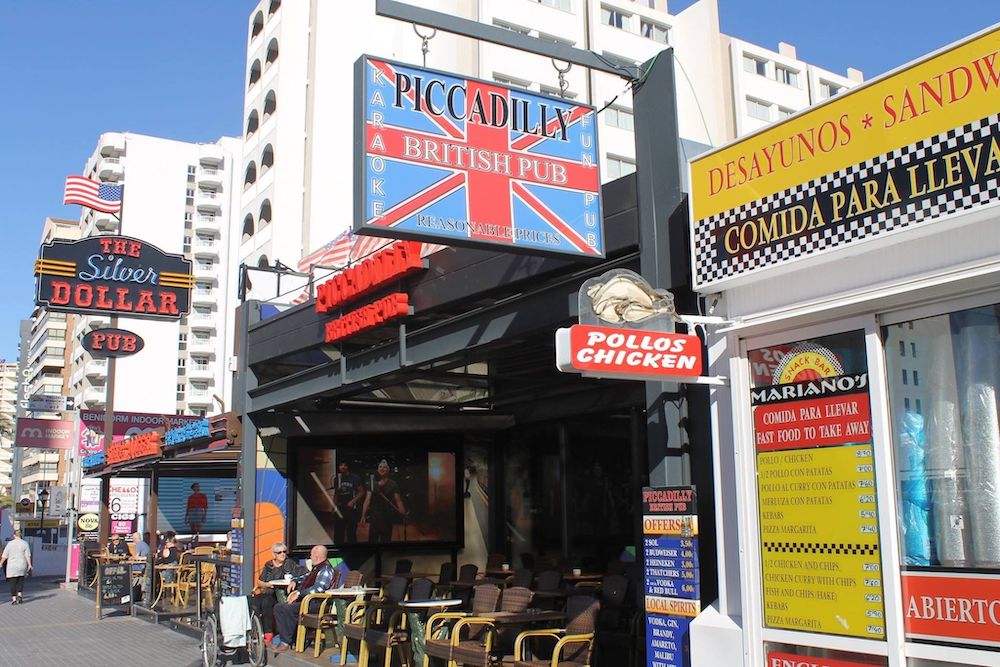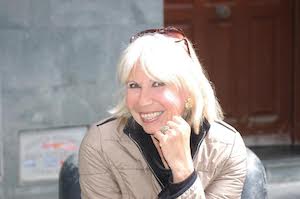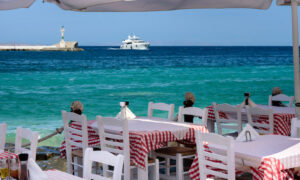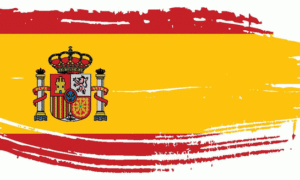(Editor’s note: Inka Piegsa-Quischotte’s post about what it’s like to live in Spain is part of the Brexit Exit series looking at countries with large British expat populations.)
Just about anybody who lives in a country where sunshine is rare, summers are rainy and winters miserable has probably had this dream: “Oh, let’s retire to Spain. Live the laid back life of the Southerners, wearing shorts and flip flops year round, lounge on golden beaches and just maybe, to make a bit of money, run a little beach bar.”
Sound familiar?
Having lived in various parts of Spain, lately in Torrevieja, a beach resort on the Costa Blanca, for many years, I’m happy to tell you if – and how – you can make your dream come true.

That beach bar? Ain’t gonna happen
For starters, forget about the beach bar. In many tourist hotspots of Spain like the Costa del Sol, Mallorca or Benidorm, there are already more English bars and pubs than local tapas bars. Due to the current pandemic, many of the bars had to close for lack of clients and even when all this blows over, there will be no need for yet another beach bar.
In fact, when planning a move to Spain, don’t bank on financing your life by any kind of enterprise. I don’t say that it’s impossible, but it’s difficult and involves a lot of red tape.
If you are a pensioner and want to retire here, make sure your pension is sufficient to support yourself and your family. Anyway, after Brexit and the end of the transition period, British nationals need to apply for residence permit and one of the conditions is to show an income (i.e. your pension) or healthy bank account.
The ultimate figures have yet to be established, so keep watching the news.
You’re in for big changes
If you are serious about living in Spain, give it a try first in the area you have in mind and not a 7-day all inclusive stay in a resort either. Rent an apartment and pretend you are already a “local.”
Two things you need to get used to first:
• First, change your inner clock , because the rhythm of life is different
• Second, arm yourself with patience.
Supermarkets and banks open generally at 9 a.m. Banks close at 2 p.m. and don’t open again in the afternoon. Some do on a specific day of the week, but not all. Then there is the sacred siesta. Between 2 p.m. and 5 p.m. the country basically grinds to a halt. Supermarkets stay open as do shopping malls, but everything else closes.
Breakfast, lunch and dinner are at much later hours than for instance in the United Kingdom or other Northern European countries. Lunch at 3 p.m. is normal, followed by another hour of sobremesa, which means just sitting at the table, enjoying coffees and brandies and chatting with your friends.
Dinner starts at the earliest at 8 p.m. but it isn’t unusual if you are invited to dinner at 11 p.m.
The good, bad and the weird
Punctuality also isn’t the Spaniard’s strong suit. Meeting someone at 4 p.m.? Don’t rush; they might not turn up until 4:30 or later and think nothing about it.
Breaks for employees are also something you need to get used to. A sandwich at your desk? Unheard of. Let’s say you arrive at your bank at opening time and want to see the person who normally attends to you. More often than not, you will be told he/she has just gone to have breakfast. Don’t explode! That’s how it is. And not only in banks, but in other offices too.
There is a saying in Spain which runs as follows: Las cosas de palacio van despacio, which means affairs of the court proceed slowly. This goes for just about everything. Expect a lot of delays, red tape and shoulder shrugging.
Everybody has probably heard of the famous mañana and that is certainly true for everyday life in Spain. You are told your furniture will be delivered between 10 a.m. and 12 a.m. Be prepared to sit at home all day. Some companies have tracking systems but they are not reliable.
On the other hand, life is certainly cheaper in Spain and food and drink are very good. People are friendly and will try to help, but often are too proud to admit they can’t. Asking for directions you might be send off the wrong way, not because of malice but because they don’t want to admit they don’t really know.
Tips
Spain’s economy depends in great part on foreign tourism and residents who rent or buy property and spend their money here. Let’s just say that some nationalities are more liked by the locals than others. If you want to live in Spain, a great way to smooth the path is to learn basic Spanish. You may have a terrible accent or only know a few words, no matter. Seeing that you make the effort will open doors and make people inclined to help you.
LEGAL
Whether you decide to rent long term or buy a property: the first rule is to seek legal advice. Formalities and rules are very, very different and complicated in Spain and even differ from province to province. Find an independent attorney who speaks your language, don’t rely on the ones recommended by estate agents.
Any kind of paperwork, be it applying for your residence permit, dealing with your divers license, getting your all important NIE (foreigner identification number) or registration with the local council called padron which gives you a lot of rights or finally registering your property with the land registry and paying the appropriate taxes: engage the services of a gestoria, an administration agency.
Not only will they get it right, they will also know their favorite civil servants who can be relied upon to speed matters up.
INSURANCE
Another important matter is health insurance. Post-Brexit, to even qualify for residence, you need to have private health insurance. Once you are a legal resident and have a pardon, you will have access to the public health system. I personally keep my private Spanish health insurance which covers me in Spain and abroad. Depending on your age, the premiums
can be hefty.
WEATHER
More on the positive side: the weather is glorious in the most popular parts of Spain. It can be very cold in Madrid in the winter and rains a lot in Galicia but that’s probably not where you want to settle.
Go with the flow, adapt to the lifestyle, get used to countless bank holidays and the fact that you have to retrain your stomach and your sleep pattern and you can indeed make your dream come true.

About the author:
Inka Piegsa-Quischotte is an international attorney-turned-travel and lifestyle writer based in Spain. She has contributed to BBC/Travel, several inflight magazines, TripSavvy (Spain) and TravelAwaits among many other publications. After several years in Turkey, she now lives on Spain’s Costa Blanca.
Read more about Spain in our Dispatches archive here.
Inka Piegsa-Quischotte is an international attorney-turned-travel and lifestyle writer based in Spain. She has contributed to BBC/Travel, several in-flight magazines, TripSavvy (Spain) and TravelAwaits among many other publications.














